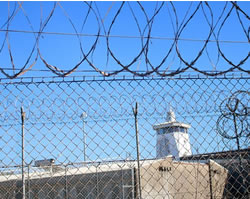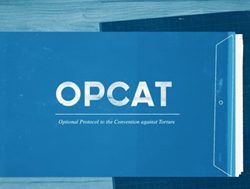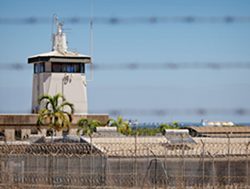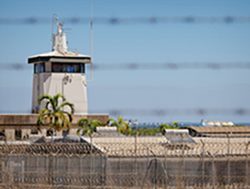 An Ombudsman’s report on Australia’s readiness to implement an international agreement against torture and other cruel punishment has found it to be lacking in oversight and scope.
An Ombudsman’s report on Australia’s readiness to implement an international agreement against torture and other cruel punishment has found it to be lacking in oversight and scope.
In his report, Implementation of the Optional Protocol to the Convention against Torture and Other Cruel, Inhuman or Degrading Treatment or Punishment (OPCAT), Commonwealth Ombudsman, Michael Manthorpe examines the work of 55 Commonwealth, State and Territory inspection and oversight bodies as part of a baseline assessment of OPCAT readiness.
The report also discusses what effective implementation should look like.
Mr Manthorpe said OPCAT was an international treaty designed to strengthen protections for people in situations where they were deprived of their liberty and potentially vulnerable to mistreatment or abuse.
“OPCAT requires the establishment of a system of independent monitoring for places of detention,” Mr Manthorpe said.
“Independent monitoring includes consideration of conditions, practices and treatment that could amount to cruel, inhuman, or degrading treatment or punishment.
“OPCAT also provides for visits by the United Nations Subcommittee on Prevention of Torture (SPT) as a further safeguard of protections for people in places of detention. The SPT recently announced it will visit Australia in the coming months.”
He said a critical obligation arising from OPCAT was the establishment of a system of regular preventive visits by independent bodies, known as National Preventive Mechanisms (NPMs).
When Australia announced its ratification of OPCAT in December 2017, it exercised its discretion to delay the establishment of its NPMs for three years.
“We have now passed the mid-point of the three-year period, yet so far only the Commonwealth and Western Australia have nominated NPMs,” Mr Manthorpe said.
“While the report highlights that there are existing inspection and oversight bodies in all jurisdictions, it also describes that there are gaps in oversight, scope, resourcing and in some instances, a lack of genuine independence in the inspecting bodies in various jurisdictions.”
He said the next critical step was for jurisdictions that had not done so to nominate NPMs.
“This is more than a technical, bureaucratic requirement. Over time, all jurisdictions will need to address the gaps between the current state described in the report and what OPCAT requires,” Mr Manthorpe said.
The Ombudsman’s 143-page report can be accessed at this PS News link.











